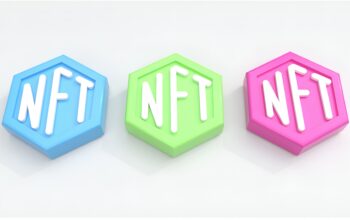The intersection of cryptocurrency and financial technology (fintech) is generating unprecedented innovation and growth in the financial sector. As we move further into 2024, the synergy between these two domains is transforming traditional financial services and creating new opportunities and challenges. This article explores the emerging trends in crypto and fintech, providing market insights and expert quotations to offer a comprehensive understanding of this dynamic landscape.
Emerging Trends in Crypto and Fintech
1. Decentralized Finance (DeFi) Expansion
Decentralized Finance, or DeFi, continues to gain momentum in 2024, offering a decentralized alternative to traditional financial systems. DeFi platforms leverage blockchain technology to facilitate peer-to-peer transactions without intermediaries. This year, DeFi is expanding beyond its initial applications in lending and borrowing to encompass more complex financial instruments such as derivatives, insurance, and asset management.
According to Vitalik Buterin, co-founder of Ethereum, “DeFi represents the democratization of finance, providing open access to financial services for anyone with an internet connection.”
2. Integration of Central Bank Digital Currencies (CBDCs)
Central Bank Digital Currencies (CBDCs) are gaining traction as governments worldwide explore their potential to enhance monetary policy, financial inclusion, and payment efficiency. In 2024, several countries, including China with its Digital Yuan and the European Union with its Digital Euro, are at the forefront of CBDC development and deployment.
Christine Lagarde, President of the European Central Bank, noted, “The Digital Euro aims to complement cash, not replace it, ensuring that citizens continue to have access to central bank money in the digital age.”
3. Enhanced Security and Compliance Measures
With the rise of crypto and fintech solutions, security and regulatory compliance have become paramount. In 2024, enhanced security protocols, such as multi-factor authentication, zero-knowledge proofs, and advanced encryption techniques, are being implemented to safeguard digital assets and user data. Additionally, regulatory frameworks are evolving to address the unique challenges posed by digital currencies and decentralized platforms.
Changpeng Zhao, CEO of Binance, emphasized, “Security and compliance are critical for the sustainable growth of the crypto industry. We must work closely with regulators to build a secure and transparent ecosystem.”
4. NFTs and Digital Asset Tokenization
Non-fungible tokens (NFTs) and digital asset tokenization are reshaping the way assets are owned and traded. In 2024, NFTs are being utilized beyond art and collectibles, extending into real estate, intellectual property, and even personal identities. This trend is driving new business models and revenue streams in both the crypto and fintech sectors.
Mike Winkelmann, known as Beeple, a prominent digital artist, stated, “NFTs are revolutionizing ownership and provenance, allowing creators to monetize their work in ways previously unimaginable.”
5. Artificial Intelligence and Machine Learning Integration
Artificial Intelligence (AI) and Machine Learning (ML) are increasingly being integrated into crypto and fintech solutions. AI-driven algorithms are enhancing trading strategies, fraud detection, and personalized financial services. In 2024, these technologies are making financial services more efficient, secure, and user-friendly.
Andrew Ng, a leading AI expert, remarked, “AI has the potential to transform financial services by providing deeper insights, automating complex processes, and improving customer experiences.”
6. Green Crypto Initiatives
Environmental sustainability is becoming a significant focus in the crypto industry. In 2024, green crypto initiatives are emerging to address the environmental impact of energy-intensive blockchain networks. Solutions such as proof-of-stake (PoS) consensus mechanisms and renewable energy-powered mining operations are gaining traction.
Elon Musk, CEO of Tesla, commented, “Transitioning to more energy-efficient methods in crypto is crucial for the industry’s future. We need to ensure that digital currencies contribute to a sustainable future.”

Market Insights
- Market Growth and Investment
The crypto and fintech sectors have witnessed substantial investment and market growth in recent years. According to a report by Grand View Research, the global fintech market size is expected to reach USD 324 billion by 2026, growing at a compound annual growth rate (CAGR) of 23.41% from 2019 to 2026. Similarly, the global cryptocurrency market is projected to grow from USD 1.6 billion in 2021 to USD 2.2 billion by 2026, at a CAGR of 7.1% during the forecast period.
Institutional investment is a key driver of this growth, with major financial institutions and corporations increasingly adopting blockchain and crypto solutions. For example, JPMorgan Chase has launched its own digital currency, JPM Coin, to facilitate instantaneous payments between institutional clients.
Jamie Dimon, CEO of JPMorgan Chase, stated, “Blockchain technology has the potential to provide a significant leap forward in banking, improving security and efficiency in transactions.”
- Regulatory Landscape
Regulation remains a critical factor in the evolution of the crypto and fintech sectors. Governments and regulatory bodies worldwide are working to establish clear and comprehensive frameworks to govern digital assets and decentralized platforms. In 2024, notable regulatory developments include the European Union’s Markets in Crypto-Assets (MiCA) regulation and the United States Digital Commodity Exchange Act.
Gary Gensler, Chair of the U.S. Securities and Exchange Commission, emphasized, “Effective regulation is essential to protect investors and ensure fair and efficient markets. We are committed to working with industry stakeholders to develop a regulatory framework that fosters innovation while safeguarding the public interest.”
- Consumer Adoption and Trust
Consumer adoption of crypto and fintech solutions is growing rapidly, driven by increasing awareness and accessibility. According to a survey by Deloitte, 76% of consumers in the United States have heard of cryptocurrencies, and 28% own or have owned digital assets. Trust in these technologies is also on the rise, with consumers appreciating the transparency, security, and convenience they offer.
Cathie Wood, CEO of ARK Invest, commented, “We are witnessing a paradigm shift in how people interact with money and financial services. The adoption of crypto and fintech solutions is accelerating, driven by their potential to democratize access to financial systems.”
- Innovation and Collaboration
Innovation and collaboration are at the heart of the crypto and fintech synergy. Startups, established financial institutions, and technology companies are collaborating to develop new solutions and services. This collaborative approach fosters a vibrant ecosystem that encourages experimentation and drives technological advancements.
For instance, the partnership between Mastercard and R3, a leading enterprise blockchain software firm, aims to develop a new blockchain-enabled cross-border payments solution. This initiative highlights the potential of combining the strengths of fintech and blockchain technology to create more efficient and secure financial services.
Michael Miebach, CEO of Mastercard, stated, “Collaboration with innovative partners is key to delivering the next generation of financial solutions. By leveraging blockchain technology, we can enhance the speed, security, and transparency of cross-border payments.”
Challenges and Opportunities
- Security and Fraud Prevention
Despite the advancements in security technologies, the crypto and fintech sectors continue to face significant challenges related to fraud and cyber threats. In 2024, the industry is focusing on developing more robust security measures and improving user education to mitigate these risks.
According to Chainalysis, a blockchain analysis company, crypto-related crime hit an all-time high in 2021, with illicit addresses receiving $14 billion over the year, up from $7.8 billion in 2020. This highlights the ongoing need for enhanced security protocols and regulatory oversight.
Jonathan Levin, co-founder of Chainalysis, emphasized, “The fight against crypto crime requires a coordinated effort between industry participants, regulators, and law enforcement agencies. Transparency and collaboration are essential to building a safer crypto ecosystem.”
- Scalability and Interoperability
Scalability and interoperability are critical challenges that need to be addressed to support the widespread adoption of crypto and fintech solutions. In 2024, efforts are underway to develop scalable blockchain networks that can handle increased transaction volumes without compromising speed or security. Additionally, interoperability protocols are being developed to facilitate seamless integration between different blockchain platforms.
Gavin Wood, co-founder of Ethereum and founder of Polkadot, remarked, “Interoperability is key to unlocking the full potential of blockchain technology. By enabling different networks to communicate and interact, we can create a more connected and efficient digital economy.”
- Education and Awareness
Education and awareness are crucial for driving the adoption of crypto and fintech solutions. In 2024, industry stakeholders are investing in educational initiatives to help consumers and businesses understand the benefits and risks associated with these technologies. This includes workshops, online courses, and informational campaigns aimed at demystifying crypto and fintech concepts.
Tim Draper, a prominent venture capitalist and crypto advocate, stated, “Education is the foundation of adoption. By empowering people with knowledge, we can accelerate the growth of the crypto and fintech industries and unlock new opportunities for innovation and financial inclusion.”

The Future of Crypto and Fintech Synergy
The synergy between crypto and fintech is poised to reshape the financial landscape in profound ways. As we look to the future, several key trends and developments are likely to drive the continued evolution of this dynamic sector:
1. Mainstream Adoption: As regulatory clarity improves and security measures are enhanced, mainstream adoption of crypto and fintech solutions is expected to accelerate. This will drive increased investment, innovation, and competition in the market.
2. Global Financial Inclusion: The integration of crypto and fintech solutions has the potential to significantly enhance financial inclusion, particularly in developing regions where access to traditional banking services is limited. Mobile banking, digital wallets, and decentralized finance platforms can provide underserved populations with access to essential financial services.
3. Personalized Financial Services: Advances in AI and data analytics will enable more personalized and tailored financial services. By leveraging user data and behavioral insights, financial institutions can offer customized products and services that meet the unique needs of individual customers.
4. Sustainable Finance: Green crypto initiatives and sustainable finance practices will
play an increasingly important role in the future of crypto and fintech. As environmental concerns become more prominent, the industry will focus on developing eco-friendly solutions that minimize the environmental impact of digital currencies and blockchain technology.
5. Innovative Business Models: The synergy between crypto and fintech will continue to drive the development of innovative business models. This includes new ways of raising capital, such as initial coin offerings (ICOs) and security token offerings (STOs), as well as novel approaches to asset management, lending, and payments.
Conclusion
The convergence of cryptocurrency and fintech is creating a transformative impact on the financial industry. In 2024, emerging trends such as DeFi expansion, CBDCs, enhanced security measures, NFTs, AI integration, and green crypto initiatives are shaping the future of finance. The market is experiencing significant growth, driven by institutional investment, regulatory developments, consumer adoption, and collaboration between industry players.
While challenges related to security, scalability, and education remain, the opportunities presented by the crypto and fintech synergy are vast. As the industry continues to evolve, it holds the promise of driving mainstream adoption, enhancing financial inclusion, offering personalized financial services, promoting sustainable finance, and fostering innovative business models.
As we move forward, staying informed and adaptable will be key to navigating this dynamic landscape. By embracing the potential of crypto and fintech, we can create a more inclusive, efficient, and resilient financial ecosystem for the future.
—
















